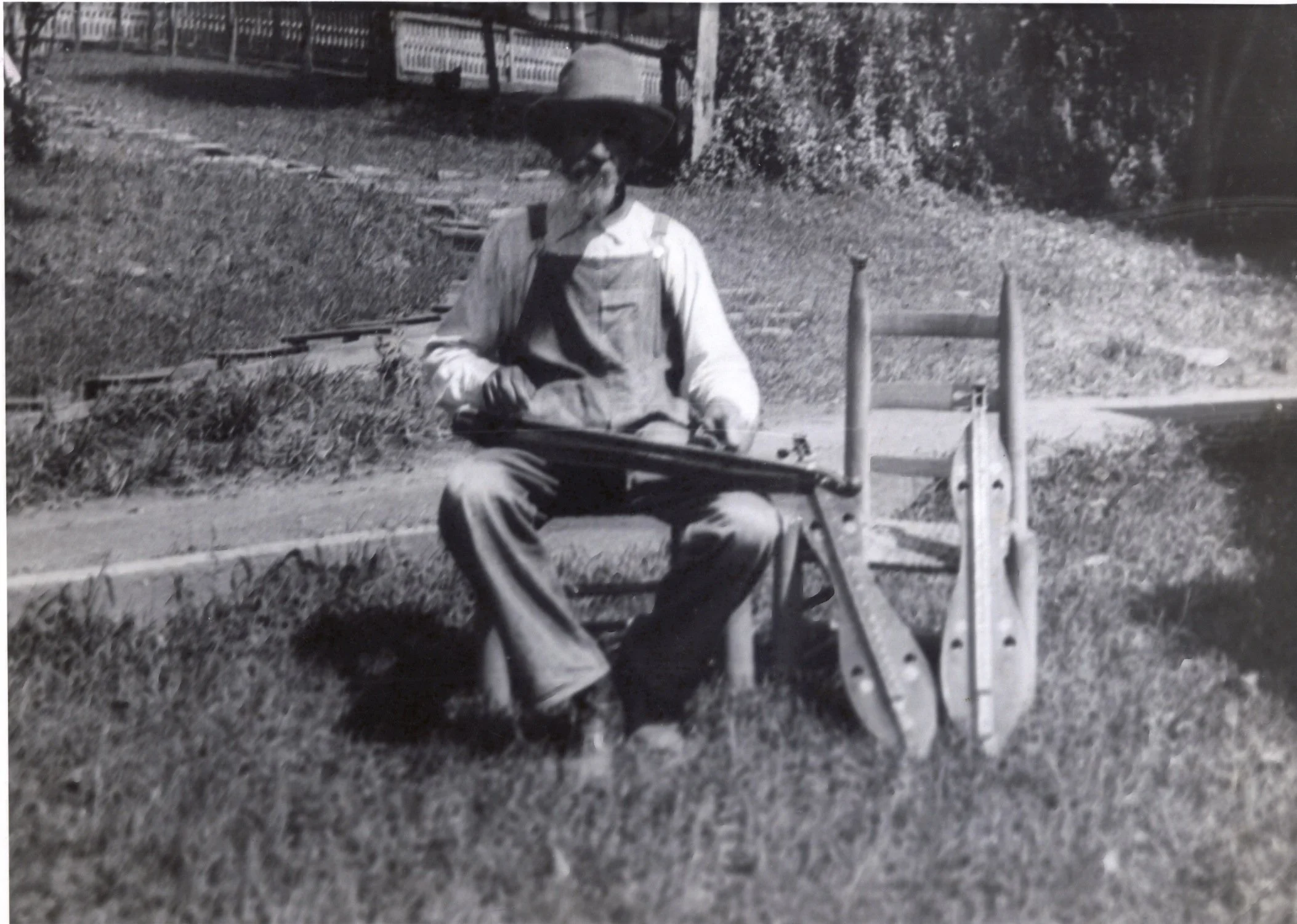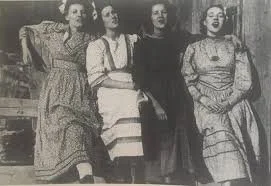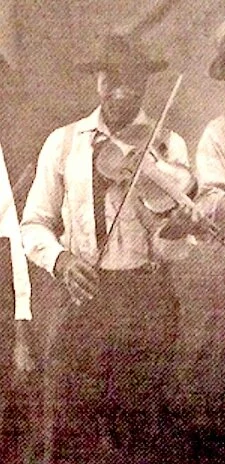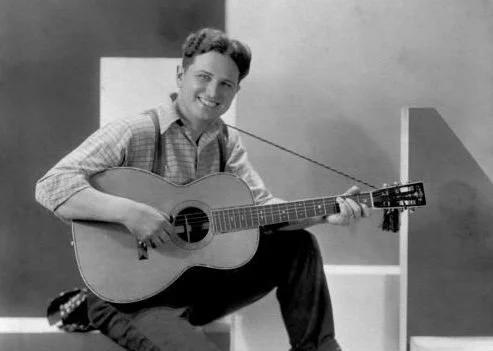
KOTMI Kentucky Traditional Music Hall of Fame
est. 2024
(In no particular order)
2024 Inaugural Inductees
Roscoe Holcomb
(born Roscoe Halcomb; September 5, 1912 – February 1, 1981)
Daisy, KY (Perry County)
A coal miner, construction laborer and farmer for much of his life, Holcomb was not recorded until 1958, after which his career as a professional musician was bolstered by the folk revival in the 1960s. Holcomb gave his last live performance in 1978. Due to what he described as injuries he sustained during his long career as a laborer, Holcomb was eventually unable to work for more than short periods, and his later income came primarily from his music. Suffering from asthma and emphysema as a result of working in coal mines, he died in a nursing home in 1981, at the age of 68. Read More
Jean Ritchie
(December 8, 1922 – June 1, 2015)
Viper, KY (Perry County)
Jean Ritchie was a folk singer, songwriter, and dulcimer player, known as the "Mother of Folk". In her youth she learned hundreds of folk songs in the traditional way (orally, from her family and community), including dozens of Child Ballads. In adulthood, she shared these songs with wide audiences, as well as writing some of her own songs using traditional foundations. Her traditional version of "My Dear Companion" (Roud 411) appeared on the album Trio recorded by Linda Ronstadt, Dolly Parton, and Emmylou Harris. Her song "The L&N Don’t Stop Here Anymore", was covered by Johnny Cash, after he heard his wife, June Carter Cash, singing it. Nottamun Town was covered by Shirley Collins (1964), and the tune was used by Bob Dylan for his 1963 song "Masters of War" on the album The Freewheelin' Bob Dylan. Her record None But One (1977), which won the 1977 critics’ award in Rolling Stone magazine, introduced her music to a younger audience, and secured her place in mainstream folk music. Read More
Stringbean
(June 17, 1915 – November 10, 1973)
Annville, KY (Jackson County)
David “Stringbean” Aikman was an American singer-songwriter, musician, comedian, and semiprofessional baseball player best known for his role as a main cast member on the hit television show Hee Haw and as a member of the Grand Ole Opry. Akeman was well known for his "old-fashioned" banjo-picking style, careful mix of comedy and music, and his memorable stage wardrobe (which consisted of a long nightshirt tucked into a pair of short blue jeans belted around his knees — giving him the comical appearance of a very tall man with stubby legs). Akeman and his wife were shot and murdered by burglars in their rural Tennessee home near Ridgetop in 1973. Read More
Cousin Emmy
(March 14, 1903 – April 11, 1980)
Lamb, KY (Barren County)
Cynthia May Carver, known professionally as Cousin Emmy, was a banjo player, fiddler and country singer who was one of the pioneering solo female stars in the country music industry. Although hit records eluded her, she proved to be a major name in personal appearances and on radio in the 1940s and 50s. In the 1960s she gained a new audience on the folk music circuit. She started out her career by playing with Frankie Moore's Log Cabin Boys. She influenced the playing of Grandpa Jones. She appeared in two films, Swing in the Saddle and The Second Greatest Sex. Read More
Sylvester Weaver
(July 25, 1897 – April 4, 1960)
Smoketown, Louisville, KY (Jefferson County)
Sylvester Weaver was an American blues guitar player and a pioneer of country blues. Weaver recorded "Longing for Daddy Blues" and "I've Got to Go and Leave My Daddy Behind" with the blues singer Sara Martin, probably on October 24, 1923, in New York City. Two weeks later, as a soloist, he recorded "Guitar Blues" and "Guitar Rag", the first blues guitar instrumentals. Both recordings were released by Okeh Records. They are the first recorded country blues, and the first known recordings of a bottleneck-style slide guitar. "Guitar Rag" (played on a Guitjo) became a blues classic. Read More
“Uncle” Ed Thomas
(1850 – 1933)
Bath, KY (Letcher/Knott Counties)
James Edward Thomas was Kentucky's great pioneer dulcimer maker. In the late 19th and early 20th Centuries, he was largely responsible for introducing the world to this beautiful folk instrument of the Appalachians. Thomas' legacy is large and important. The "Kentucky style" dulcimer pattern, with an hour glass-shaped body and heart-shaped soundholes, became the best-known form of the instrument during the post-World War II folk revival. Nowadays, everywhere in the world, when most people think of dulcimers, they think of the beautiful pattern that Thomas developed long ago in Knott and Letcher Counties. Read More
Coon Creek Girls
The Coon Creek Girls were a popular all-female "string band" in the Appalachian style of folk music (a precursor of country music) which began in the mid-1930s. Created (and named) by John Lair for his Renfro Valley Barn Dance show, the band originally consisted of sisters Lily May and Rosie Ledford (from Powell County, Kentucky) along with Esther "Violet" Koehler (from Indiana), Evelyn "Daisy" Lange (from Ohio) and Norma Madge Mullins (from Renfro Valley, Kentucky). On June 8, 1939, when King George VI and Queen Elizabeth visited the White House of President Franklin D. Roosevelt, there were numerous musical acts, including Lawrence Tibbett, Marian Anderson, and Kate Smith. Also included were a troupe of Bascom Lunsford's square dancers and the Coon Creek Girls. Read More
Ed Haley
(August 16, 1885 – February 3, 1951)
Ashland, KY (Boyd County)
James Edward "Ed" Haley was a blind professional musician and composer best known for his fiddle playing. He traveled frequently, performed over WLW in Cincinnati, and made occasional studio recordings for friends, such as for Doc Holbrook in Greenup, Kentucky. Late in life, he made recordings for the family on a Wilcox-Gay disc-cutting machine brought home from the service by his stepson Ralph. Eventually about a one-half to one-third of those recordings were released to Rounder Records. Read More
Arnold Schultz
(1886–1931)
Ohio County, KY
Arnold Shultz was an African-American coal miner, fiddler and guitarist. Though he was not recorded, Bill Monroe, who was formative in the development of bluegrass music, has openly cited Shultz as an influence on his playing. Shultz taught his guitar methods to Kennedy Jones, who disseminated the "thumb-style" methods further. His methods were passed down to Merle Travis and Ike Everly. Schultz died on April 14, 1931. The IBMA Foundation established the Arnold Shultz Fund in 2020 to support activities increasing the participation of people of color in bluegrass music. The Arnold Shultz Fund project grants are awarded every year in the spring. Read More
Bradley Kincaid
(July 13, 1895 – September 23, 1989)
Point Leavell, KY (Gerrard County)
William Bradley Kincaid, aka “The Kentucky Mountain Boy,” made his debut radio performance in 1926 on the National Barn Dance show on WLS-AM in Chicago, Illinois. A prolific composer of folk and country music tunes, the first edition of his 1928 songbook called My Favorite Mountain Ballads sold more than 100,000 copies; later editions brought the total to 400,000. He recorded on Gennett Records. In 1935 he was working at WBZ-AM in Boston, Massachusetts, where he performed with a band that included young singer and banjo player Marshall Jones. Kincaid teased the 22-year-old fellow Kentuckian for always being grumpy when he came to the studio to do the early morning broadcast, nicknaming him "Grandpa" Jones. The moniker became permanent for the future Grand Ole Opry star. Kincaid moved to Nashville, Tennessee, in 1945 where he too became a member of the Grand Ole Opry. In 1971, he was inducted into the Nashville Songwriters Hall of Fame. Read More









